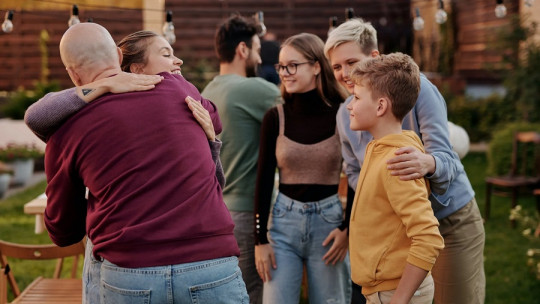
‘I don’t like my family’ is one of the most frequent complaints heard in psychotherapy sessions. Sometimes, this is the reason for the consultation, the reason why the person has gone to the psychologist; Sometimes, it is one of the consequences of the behavioral problem for which one goes to therapy. And sometimes, it’s both things at the same time.
In any case, in many cases it is possible to make great progress in overcoming these types of problems, although many do not believe it. It is true that once you have been experiencing a dysfunctional relationship with your parents for years, the idea that things could go differently seems unrealistic; but it is the truth. If people’s behavior patterns are already something very flexible and adaptable to circumstances, the behavior patterns of several people in interaction can be transformed even more. And this is good news in the world of psychotherapy, because with With the help of psychologists it is possible to identify for the first time problems that have been entrenched for years and apply solutions that have never been used before.
Taking this into account, here we will see some of the most used psychological principles in therapy for Help people bond with family
The initial question: an all or nothing question
Before considering how we can reconnect with our family (or connect for the first time, in some cases), it is essential to start with a determining question. One that is at the core of the successive decisions that we will make below; It is at the origin of all of them. This question is the following: Does my family threaten physical and/or mental health?
If the answer is “yes”, we must be clear that The priority is to get to safety as soon as possible In the most extreme cases, in which there are true cases of constant abuse and domestic violence, this involves cutting off the relationship, no matter how painful this may be, at least for a time. Time that we will dedicate to repairing the emotional wounds that have been left in us and developing our lives independently, gaining autonomy; Only once this is done will we be far from the danger of falling back into the dynamics of abuse as victims and will we be able to think about giving second chances.
If the answer is “no”, we can consider establishing strategies to strengthen these emotional ties in the short term but it is equally important to be attentive to the signs that dealing with the family may be taking a psychological toll on us, to have a reference about how far we are willing to sacrifice to take the initiative in that emotional “reunion.”
So, at the beginning of everything there is a question of all or nothing: either we propose to be within the family and lead a life as a consequence of it, or we propose to completely break with that social and relational environment, or at least with those who we meet. have harmed and with whom they have collaborated in it.
I don’t like my family: strategies to overcome conflicts and strengthen family ties
In psychotherapy, each problem is always addressed individually, and of course, there are no solutions that ensure, in advance, resolving a family conflict that may have lasted years or decades. However, these general ideas, widely used by therapists, can serve as a reference.
1. You have to combine moments of intimacy and moments of going together
Maintain this healthy balance It makes it possible for each person to be comfortable contributing to and receiving things from the family and, at the same time, having their own space to develop life as an individual.
2. Assertiveness is the best prevention tool
Being assertive people makes it possible for us to communicate disagreements and dissenting opinions in due course, without allowing discomfort to accumulate at the cost of not being expressed for fear of generating discomfort or arguments until it generates explosions of frustration and anger.
3. It is important to respect generational differences
Many people, by dint of interacting only with people their age, end up not knowing how to connect with those who belong to other generations, assuming that they have inappropriate interests, tastes, and political and moral positions.
This creates a gap that makes honest and direct communication difficult, which results, for example, in many parents ending up limiting their conversations with their children to bombarding them with questions about objective facts about their behavior: What have you done today? What career will you choose? When will you look for a boyfriend? Thus, there is no deepening of the feelings, concerns or priorities of that person, and as a consequence young people become defensive in the face of that attitude that they perceive as police.

Therefore, it is important to have conversations that are not limited to asking banal questions, and in which each person not only questions, but also contributes and is willing to learn from the other.
4. Criticism should always be made directly and constructively
It is very harmful to criticize behind someone else’s back ; Not only because it causes discomfort in the interlocutor and does not serve to provide solutions, but also because it generates an environment of distrust in the family. This should be replaced by constructive criticism or, if what we don’t like is a detail of no major importance, even by silence.
Are you interested in having professional psychological assistance?
If you are looking for professional help from a psychologist trained in the management of personal relationships and the emotions linked to them, contact me.
My name is Javier Ares and I am a psychologist specialized in the field of clinical psychology. I work addressing problems such as low self-esteem, family conflicts, excess anxiety and stress, depressed mood, and relationship crises, among others. You can count on my assistance both in person and in the online therapy format via video call.








